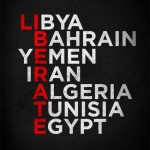Website policy
We provide links to articles we think will be of interest to our supporters, informing them of issues, events, debates and the wider context of the conflict. We are sympathetic to much of the content of what we post, but not to everything. The fact that something has been linked to here does not necessarily mean that we endorse the views expressed in it.
_____________________
Essential reading on Gaza Leon Rosselson, letter to the Guardian, 28 July 2014
“Before the current round of violence, the West Bank had been relatively quiet for years,” writes Jonathan Freedland (Israel’s fears are real, but this war is utterly self-defeating, 26 July). According to B’Tselem, the Israeli human rights centre, 90 West Bank Palestinians were killed, 16 of them children, by the IDF or by settlers between January 2009 and May 2014. According to the UN Office for the Coordination of Humanitarian Affairs, there have been 2,100 settler attacks since 2006, involving beatings, shootings, vandalising schools, homes, mosques, churches and destroying olive groves. According to Amnesty International, between January 2011 and December 2013, Israeli violence resulted in injuries to 1,500 Palestinian children. “Relatively quiet” for whom?
_____________________
Popular Posts
- About 33,426 views
- Signatories 26,246 views
- Contact Us 11,571 views
- Events Calendar 11,437 views
- The Conflict In Maps 11,209 views
- Israeli mother Addresses European Parliament 8,119 views
- Signatory Timeline 7,818 views
- Did the IDF kill its own? 6,062 views
- Facebook Bans JFJFP Page Admin for Posting Images of Palestinian Victims 5,365 views
- We call on the British Government to hold Israel to account 4,388 views
|
 This account of how news reporting about Israelis/Palestinians ignores the latter but attributes all agency, and fault, to the former is by former AP correspondent Matti Friedman, a Canadian domiciled in Jerusalem. Its mix of perceptive points and increasingly contentious argument provides an insight into the beleaguered feeling of Israeli Jews.
 The programme ‘Jerusalem: An Archaeological Mystery Story’ made by Israeli director Ilan Ziv, was pulled from the schedule at the last minute last April. The BBC said it did not fit editorially with its archaeology season. Although it is true that archaeology is a politically loaded subject in Israel/Palestine, the BBC knew this before it commissioned the film. Presumably someone higher-up had a fit of panic on actually seeing it. PSC leads the charge against the BBC. JfJfP signs the letter asking the BBC to explain its decision.
 Those interested in the Israel/Palestine conflict are convinced the BBC is biased — but towards whom and in what ways? A problem identified by ‘More Bad News’ is that the Israeli state and the Palestinian people are very different entities; the stateless Palestinians are only in the news as terrorists or, rarely, as victims. A second problem is that BBC journalism is exempt from Freedom of Information inquiries. Two articles and links to the arguments.
 There can be no good government without good questions being asked, and relayed, about what is going on. There is no shortage of curious and courageous Palestinian journalists; but security authorities in Israel, the PA and Hamas are too likely to see them as traitors, enemy agents – or unwelcome truth-tellers. These are just a selection of the very many items available.
 Whatever one’s criticisms of the Jewish Chronicle over the years, it is nonetheless sad to see it sliding into the mire of both sectarianism and irrelevancy. Critical letters don’t often get published, but we still submit them from time to time. Here are four recent unpublished offerings; and, a late addition (23 July), a letter from an Ecumenical Accompanier that was published, but edited to lose its most telling detail.
 The trickle of publications about actions by Israeli institutions which undermine the democracy of ‘the Middle East’s only democracy’ has become a torrent. Veteran critic Uri Avnery explains why the alarm is now truly well-founded
 Just announced – Netanyahu has overturned the threat to the media made by his director of the government press office if they cover the flotilla. The Israeli goverment has secured a series of own goals in its varied efforts to stop media coverage (with the many issues about Gaza and international law which the flotilla raises): 1) A review of Israel’s diplomatic efforts secures a notably ambivalent coverage in the normally supportive Bloomberg Business Week; 2) Josef Federman reports from Jerusalem on the response to the threatening letter from Oren Helman; 3) an Israeli video of a gay man denouncing the flotilla is revealed by electronic intifada to be a government hoax; 4) the letter of protest written by ACRI to Oren Helman, credited as one of the voices prompting Netanyahu’s change of mind
 Former BBC Middle East correspondent Tim Llewellyn says the BBC fails to inform their audiences of the context of the conflict, especially the fact that the Palestinians are fighting a war of liberation against illegal and harsh occupation. The BBC gives its response. The context is a review of the updated edition of Bad News from Israel by Greg Philo and Mike Berry
 Vengeance is mine sayeth the Israeli state. Israeli investigative journalist Uri Blu who published top-secret IDF documents leaked to him by Anat Kamm is to be prosecuted. The state is clear that it is not pursuing Haa’retz and its publisher, but going all out to criminalise investigative reporters as such: “[W]e thought it was more correct to go for the precedent-setting move of prosecuting a journalist for retaining stolen documents…”
 MJ Rosenberg follows up his analysis of Aipac (posted earlier in the week) with this piece in the Huffington Post. Here he deals with the latest contribution by David Remnick, editor of the New Yorker and arguably the most influential Jewish American journalist writing today. Having traditionally given Israel the benefit of the doubt Remnick has now moved decisively against the “Israel First” brigade…
 David Remnick provides wonderful discussion of Haaretz’s role in Israeli society, its tensions and contradictions, based on extensive interviews with and discussions about its owners and leading journalists, past and present: Amos Schocken and the Schocken family, Dov Alfon, Haaretz’s editor-in-chief, Gideon Levy, Amira Hass, Anshel Pfeffer, Amos Elon, David Landau, Aluf Benn and more…
 Larry Derfner gives a guide as to how to sell Israel in changing times: “Our hearts are with the protesters in the square, but…”; Instead of saying, “Israel is the only democracy in the Middle East,” which may not be the case for long and which sounds like you want to keep it that way, you say: “Israel is the only stable democracy in the Middle East”; “Israel is not perfect.”; “Delegitimization”’ A really cool word that you can use against anybody who says anything about Israel that you don’t like. And you don’t want to use the word “terrorism” for a lawsuit, just like you don’t want to use the word “antisemitism” for some CNN story, so you call the CNN story “delegitimization” and the lawsuit “lawfare.” You gotta be subtle…
 Events are taking place too quickly and in too many countries for anyone to have a comprehensive, informed overview of developments. We’ve put together a few links to what we hope are useful articles dealing with Libya, Bahrain, Egypt, Jordan…
If you read just one thing let it be As’ad AbuKhalil’s 300-word contribution.
Updated Sat 26 Feb 10.4am
 “There are moments in world affairs that call for the suspension of disbelief,” write the editors of the Middle East Report Online. “At these junctures, caution ought to be suppressed and cynicism forgotten to let joy and wonderment resound.” The article “Red-White-and-Black Valentine” is just such a celebration of the Egyptian revolution. The second Mero article crossposted here, “Revolution and Counter-Revolution in the Egyptian Media” argues that “Access to and use of communication and information networks — cellular phone services; the Internet and new social media; TV and newspapers — was pivotal as events unfolded. ” In it Ursula Lindsey explores the possibilities and the contradictions involved in the new battle of the media; the army’s initial attempts to control, by shutting down the phone service, text messaging, the internet — and why that failed to abort the revolution…
Plus: Richard Silverstein writes about digital media in an age of revolution.
 Anthony Lerman looks at the TV series the Promise, of which two of the four episodes have now been screened: “That such a major and challenging series—in which the Israeli characters are drawn sympathetically and realistically, with not a hint of demonization—appears on one of the country’s mass audience television channels and is positively received throws an interesting light on what I believe are grossly exaggerated claims that London is the hub of international efforts to delegitimize Israel and that British Jews are subject to a constant barrage of media-driven anti-Zionist propaganda that borders on, or overlaps with, antisemitism…”
 On Saturday night Israel’s most-watched news program on Channel 2, aired a 10-minute “Special Report” on the weekly demonstrations in the Palestinian village of Bil’in. Haggai Matar of Anarchists Against the Wall was there. Despite his best efforts, Palestinian protestors were written out of the story!
 In his new blog, Antony Lerman looks at the inadequacy of media reporting on developments in Egypt. He also notes that often “flaky” responses by the US and the EU and argues that if they “fail the millions of young people yearning for change in the Middle East, by not using their influence to empower rather than control them, the disaffection that may set in could have catastrophic consequences, not only in the region but inside America and countries in Europe…”
 Last week the Jewish Chronicle ran an editorial “Guardian’s shame”. Apparently its behaviour, in how it presented the Palestine Papers was “even by its own often disreputable standards over Israel… simply shocking”. This week the Guardian replies – and the JC continues its private war.
 StandWithUs, on the openly racist end of the mainstream Jewish institutional world in the United States, has produced a new comic book hero Captain Israel to fight the demons of the present, leading among which is the Boycott, Divestment and Sanctions movement, portrayed in Palestinian colours as the evil serpent so beloved by the antisemites. Cecile Shurasky of Muzzlewatch draws out the parallels with Nazi propaganda. Plus Roi Maor comments (added 19 Jan)
 Israeli satire is alive and well. But sometimes it is just too close to the bone…
|
Get Weekly mailings
Click here to receive weekly summaries of our website postings
____________________
 BSST is the leading charity focusing on small-scale grass roots cross community, anti poverty and humanitarian projects in Israel/Palestine
____________________
|




















